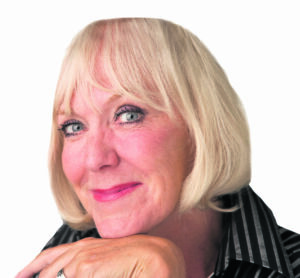Opinion
Crazier than Christmas: Migrant problem is everyone’s problem
This article is more than 10 years old.

Vivienne McKee, Denmark’s best-known English entertainer, is this country’s most beloved foreign import. Over the last 30 years, hundreds of thousands of Copenhageners have enjoyed her annual Crazy Christmas Cabaret show at Tivoli, marvelling at her unique, wry Anglo wit and charm.
I was at my Jamaican friend’s house in London having a cup of tea, when there was suddenly a loud crash. “Don’t worry,” she said. “That is the workman. I am having a wall knocked through.”
United colours of Britain
A man came into the kitchen and they had a hand-gesture conversation. “He is from Romania,” she explained. “And doesn’t speak much English. But we communicate just fine!”
Her beautiful coffee-coloured daughter came into the kitchen with a little blonde girl. “Hello, this is Maria,” she chirped. It turned out that Maria was her neighbour’s daughter and they were from Portugal. So many nationalities! ”Oh yes,” my friend said. “There are lots round here. Maria’s mother is married to an Iranian and the couple who live on the other side are Polish. This part of London is home to lots of immigrants so the takeaway food here is the best!”
Continentally contentious
I couldn’t help thinking of the horror stories we are hearing about immigrants struggling to reach Europe and meeting their deaths in the Mediterranean – about 1,500 already this year. Immigration is accordingly being discussed even more than usual – not just by the politicians, but by everybody all over Europe. We must learn to absorb the many cultures and languages.
Some people think that this is impossible, like the British columnist Kate Hopkins. She has sparked outrage in the UK by calling the migrants “cockroaches”, saying that, instead of rescue boats, Italy should use “gunships” to keep them away from its shores. Her views are shocking, but it could be said that in many cases she is merely the ugly voice of established policy. Search and rescue efforts were scaled down in the hope that this would deter migrants from making the sea crossings. That hasn’t happened.
In search of a better life
But these people don’t want to leave their homes. Migrants and refugees are heading for Italy and Greece from all over the Middle East and Africa in desperation, driven by wars, Islamic insurgencies, Western interventions and climate-related droughts and famine.
In many cases, Western countries have destabilised these countries for their own economic ends, allowing them to descend into lawlessness, so it’s no wonder people want to escape. The sad thing is that the migrants will keep coming, and with fewer patrols to stop and rescue them, even more will be lost at sea.
Tight-knit snug fit
Fortunately there are not many people who share Hopkins’ views, especially in London – which is the mega-capital of many cultures – and that is why many immigrants want to come and become British. Britain has an anti-immigration party that gets most of its support from rural areas where there are no immigrants living. Their idea is to instil fear in people. Dansk Folkeparti has a similar aim.
But when people live close to each other, it works. As I was musing on this, my friend’s husband came in. He yelled: “Hey! What’s a bloody Brit doin’ in ma home?” I barely understood a word. Then I realised why. His accent was Scottish. And above everything, he hates being British.
About










































